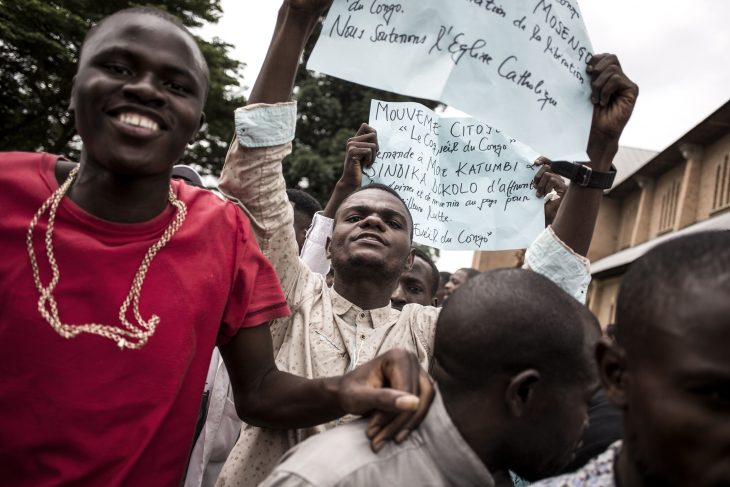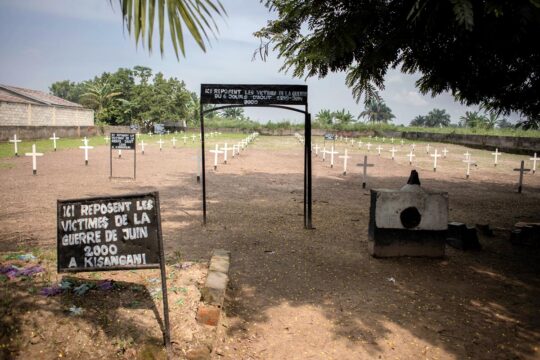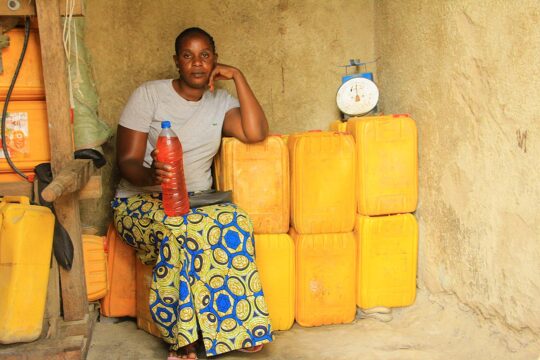On JusticeInfo.net, French jurist Didier Niewiadowski looks at what he calls “exception for insecurity”, a pretext used by African dictators to postpone elections indefinitely.
The best example, he writes, is Joseph Kabila in the Democratic Republic of Congo who, according to Niewiadowski, is “using the exception for insecurity with cynicism and provocation”. “His mandate expired definitively on December 19, 2016,” the writer explains, “but despite mediation by the National Episcopal Conference of Congo and the accords of December 31, 2016, the presidential election did not take place in 2017. Insecurity is clearly the primary reason used for not launching the first phases of the electoral process. And so the presidential mandate is prolonged indefinitely whilst repression is stepped up, the armed groups become bolder and opponents are hunted down.” A report by the International Federation for Human Rights (FIDH) points to how Kabila and his militia are fomenting insecurity, notably in Kasai province. As a result, there is little chance that the election, which should have been held in autumn 2016, will be organized in 2018. Niewiadowski fears that the Congolese president may be emulated in Cameroon or Mali, where other presidents in trouble are also using the pretext of insecurity.
In Mali, the President thus announced an amnesty law, presented as a law of “national understanding” as part of a New Year speech that was not well received by civil society. “This plan divides the country and people do not understand”, writes JusticeInfo correspondent in Bamako, Bokar Sangaré. “The Head of State may well say that his initiative is ‘neither a bonus for impunity nor an admission of weakness’, but for his opponents it is unwelcome, especially at this time of insecurity, particularly in the north and centre of the country”. Andrew Lebovich, a doctoral candidate at Columbia University in New York and expert on Mali, says “everyone is wondering why propose such an initiative, and why now, at a time when his political position is under more threat than before and when there are increasing doubts about the holding of regional, local and presidential elections”.
In Burundi, the first African country to pull out of the International Criminal Court (ICC), the regime’s crimes continue behind closed doors, and access to the country is closed to international investigators. But according to Stella Ndirangu, a Kenyan activist interviewed by JusticeInfo, international justice can still do its work. “Since those crimes started being committed, there has been documentation with a view to ensuring that there will be accountability in the future,” explains Ndirangu. “Secondly, there are a lot of people who have been displaced from Burundi. They are potential witnesses.” And so, she says, “the ICC will have to conduct its investigation largely outside Burundian territory”.
The Kenyan human rights lawyer says “it is sufficient to show us that international justice is at work and is important in terms of trying to address serious violations that we are seeing both in Africa and globally”.
In Tunisia, the only Arab country in transition, history seems to be repeating itself. In the same week that the Truth and Dignity Commission was looking into the 1984 bread riots under Bourguiba, the country saw new protests against the rising cost of living. And, asks our Tunis correspondent Olfa Belhassine, “is a second January 1984 likely today?






